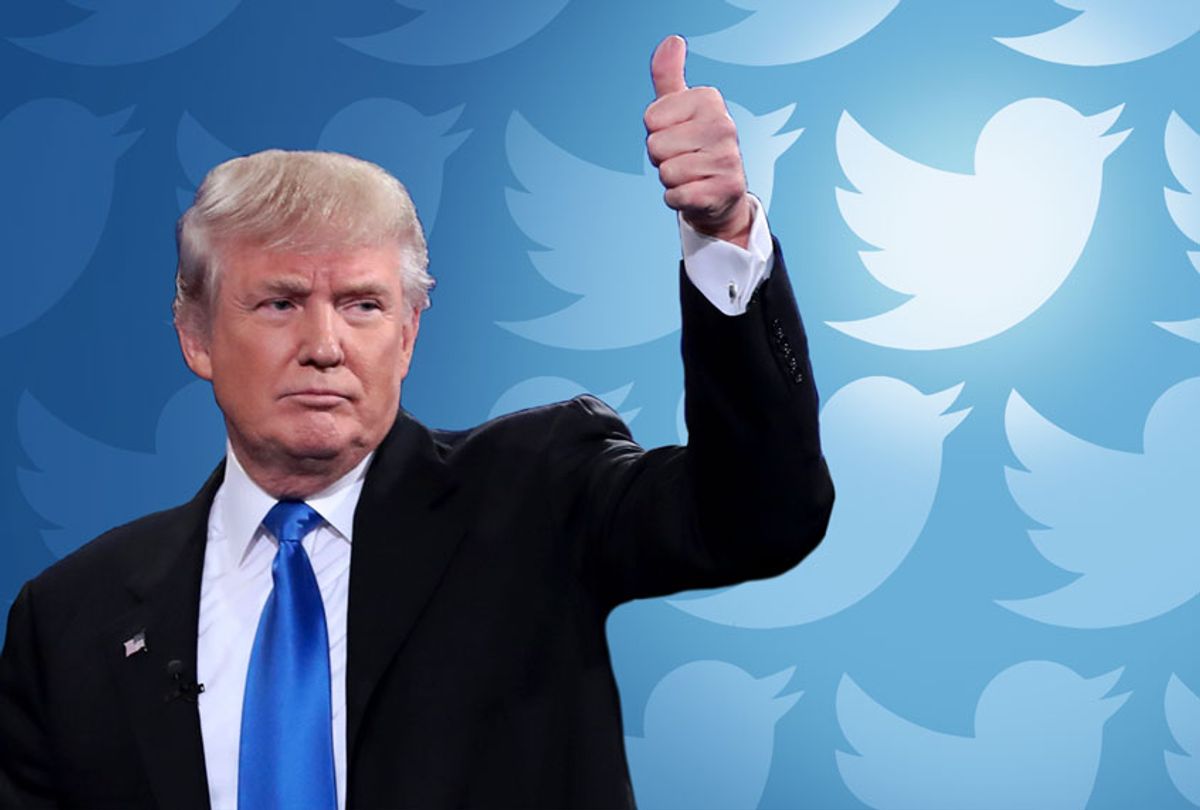Our current political climate has led to a frightening increase in anti-media sentiment, generally driven by the right wing. Since the 2016 election, Donald Trump has driven the charge against the free press, lambasting all news that criticizes him as "fake news." 2017 was the worst year on the record for journalists imprisoned for their work worldwide, and the president celebrated the seeming takedown of the press by holding a "Fake News Awards" on January 17.
While the president's anti-media project has alarmed advocates of press freedom and ignited his political base, little is known about how fake information actually spreads — and questions remain about what constitutes "news," "fake news," "false information," "rumors" and/or related terms.
Three researchers at the Massachusetts Institute of Technology (MIT) delved into the fake news debate, and their findings are stunning. In a study published Thursday in Science magazine, the trio concluded that fake news circulated farther, deeper and at a faster rate on Twitter than accurate information.
The massive analysis, which CNN said took about two years to complete, discovered that about 126,000 stories tweeted by about 3 million people over 10 years were false.
To analyze the penetration of fake news online, the researchers first had to define what constitutes fake news, noting that doing so has become increasingly more complicated in the modern political sphere, as "politicians have implemented a political strategy of labeling news sources that do not support their positions as unreliable or fake news, whereas sources that support their positions are labeled as reliable or not fake." In other words, the term "fake news" has seemingly lost all value in relation to the information that is presented, as citizens routinely label true and false information as "fake" and seemingly do not know how to decipher between the two.
The findings revealed that fake political news, "traveled deeper and more broadly, reached more people, and was more viral than any other category of false information." Fake news also circulated Twitter more quickly and reached users more than three times faster than all other types of false news.
The researchers discovered that users who spread false news online had fewer followers, followed few people, were significantly less active on Twitter, were verified less often, and had been on Twitter for considerably less time than users who did not spread misinformation.
While bots have been suspected of the mass propagation of misinformation online — especially in regards to the special investigation into Russia's involvement in spreading misinformation during and after the 2016 presidential election — the study found that humans, not robots, were more likely to disseminate falsehoods.
The study claims that the spread of falsehoods online has serious consequences beyond the First Amendment, indicating that misinformation can influence "our responses to everything from natural disasters to terrorist attacks," as well as "misalignment of business investments and misinformed elections."
As an example, the trio explain, "false rumors have affected stock prices and the motivation for large-scale investments, for example, wiping out $130 billion in stock value after a false tweet claimed that Barack Obama was injured in an explosion."
For the past two years, major social media platforms have struggled to combat the penetration of fake news and misinformation.
Earlier this year, Facebook announced changes to its news feed in an effort to combat the platform's fake news problem. In the past year, the social media giant has attempted several measures to tackle the dissemination of fake news on its platform — including employing a third party face-checking initiative — but its results have been mixed.
The MIT study comes as Americans' confidence and trust in the media has sunk to an all-time low, with just 32 percent of older Americans saying they trust the media, according to the most recent Gallup survey published in 2016. The data says that 2016 marked the first time that trust in the media among older Americans has dipped below 40 percent since 2001.
The divisive presidential election and Republicans' anti-journalist rhetoric largely contributed to the decline in trust.
It's unclear whether Twitter will announce new initiatives to deal with its own fake news problem. Until then, users can count on the fake news fight to continue, as long as the president and other members of the GOP deem any and all unfavorable coverage as "fake news."

Shares